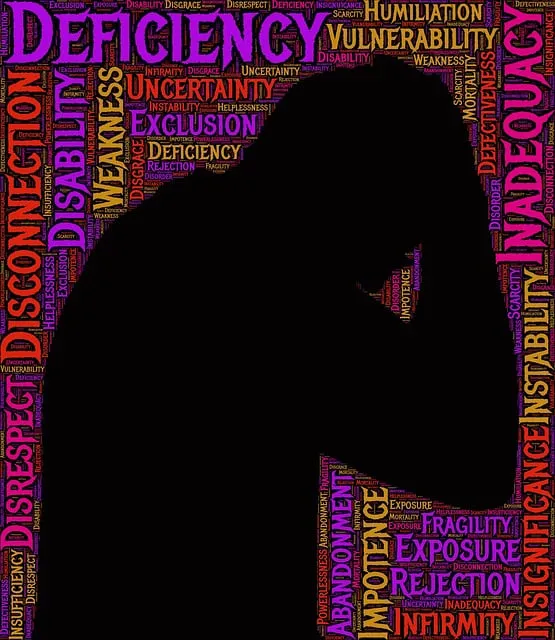The Kaiser Permanente mental health department in Parker, accessible via their dedicated phone number, prioritizes patient safety through rigorous risk assessment practices. They empower staff with guidelines, training, and Mental Wellness Journaling Exercises to manage risks and maintain well-being. This holistic approach fosters a culture of continuous learning, improving care excellence for diverse mental health needs, especially in underserved communities. By focusing on safe interactions and inclusive care, the department ensures positive outcomes for clients seeking support through their phone line.
Mental health professionals constantly navigate complex risks, requiring meticulous risk assessment practices. This article explores essential aspects of risk management within the context of the Kaiser Permanente Mental Health Department’s expertise. We delve into understanding risk assessment fundamentals and its crucial role in safe patient-professional interactions. Key considerations are highlighted, including strategies implemented by the Kaiser Permanente team. By examining these elements, professionals can enhance their approach to mitigate risks effectively, ensuring patient safety and fostering positive outcomes, as demonstrated by Parker’s successful implementation of these practices.
- Understanding Risk Assessment in Mental Health Practice
- The Role of the Kaiser Permanente Mental Health Department
- Key Considerations for Safe Professional Interaction
- Implementing Effective Risk Management Strategies
Understanding Risk Assessment in Mental Health Practice

Understanding Risk Assessment in Mental Health Practice is a cornerstone for professionals aiming to provide safe and effective care within the Kaiser Permanente mental health department. This involves a systematic process of identifying, evaluating, and managing potential risks associated with various aspects of therapy, including patient history, treatment methods, and practitioner well-being. By adhering to established guidelines, such as those offered through the Parker Mental Health Education Programs Design, professionals can implement robust Risk Management Planning for Mental Health Professionals.
Mental wellness journaling exercises have emerged as valuable tools within this framework. They not only promote self-awareness among practitioners but also provide structured guidance on navigating complex cases and personal challenges. Incorporating these mental health education programs fosters a culture of continuous learning and improvement, ensuring that the Kaiser Permanente mental health department remains at the forefront of patient safety and care excellence.
The Role of the Kaiser Permanente Mental Health Department

The Kaiser Permanente Mental Health Department plays a pivotal role in providing comprehensive care and support to individuals seeking emotional healing processes. With a dedicated team of professionals, they offer a range of services tailored to meet diverse mental health needs. Located in Parker, their accessible phone number facilitates easy contact, ensuring that those in need can reach out without hesitation.
Through the Community Outreach Program Implementation, this department actively reaches out to underserved communities, breaking down barriers and promoting mental wellness. They also provide guidance on Mental Wellness Journaling Exercises, empowering individuals to take an active role in their mental health journey. This holistic approach not only caters to immediate concerns but also fosters long-term resilience.
Key Considerations for Safe Professional Interaction

Mental health professionals at Kaiser Permanente’s department, accessible via the mental health department phone number Parker, must prioritize safe interactions with clients to ensure well-being for both parties. Key considerations include cultivating strong communication skills and active listening to foster trust and understanding. This involves clear, empathetic, and non-judgmental expression, allowing clients to express their thoughts and feelings openly.
Additionally, professionals should engage in regular Social Skills Training and Stress Management Workshops to enhance their personal and professional resilience. Incorporating Cultural Sensitivity in Mental Healthcare Practice is paramount, as it helps to navigate diverse backgrounds, beliefs, and communication styles, ensuring inclusive and effective care. These practices collectively contribute to a secure environment, promoting positive outcomes for clients seeking mental health support.
Implementing Effective Risk Management Strategies

Implementing effective risk management strategies is paramount within the Kaiser Permanente mental health department, fostering a safe and supportive environment for both professionals and clients. The first step involves establishing clear guidelines and protocols, ensuring every staff member is well-versed in risk assessment procedures. This includes regular training sessions on identifying warning signs, understanding client histories, and recognizing when professional boundaries might be at risk.
By integrating coping skills development and mental wellness journaling exercises, the department can empower professionals to manage stress and maintain their own mental health. Compassion cultivation practices have also proven effective, encouraging staff to approach challenges with empathy and resilience. The Parker Mental Health Resource Line, for instance, offers a dedicated phone number for professionals seeking guidance or support, ensuring prompt access to expert advice and fostering a culture of continuous improvement.
Mental health professionals must continually assess risks to provide safe and effective care. The Kaiser Permanente Mental Health Department in Parker plays a vital role by offering guidance and implementing strategies to mitigate risks, ensuring patients receive the highest level of protection. By understanding risk assessment, adhering to key considerations, and employing effective management tactics, mental health practitioners can foster a secure environment that promotes healing and well-being for their clients.






